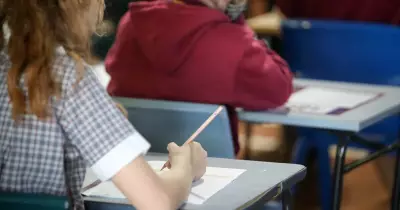
Australian classrooms are facing a crisis as teachers struggle to cope with the increasingly complex needs of their students, according to education expert Lee Casuscelli. The growing demands on educators have reached critical levels, requiring immediate action and systemic support.
The Mounting Pressure on Educators
Teachers across Australia are dealing with unprecedented challenges in their daily work. Lee Casuscelli, a prominent education commentator, highlights that educators now confront a wide range of student needs that extend far beyond traditional academic instruction. The classroom dynamic has transformed dramatically, with teachers required to address mental health issues, behavioral problems, and various learning difficulties simultaneously.
The situation has become so demanding that many educators feel overwhelmed and underprepared. Casuscelli emphasizes that teachers are spending increasing amounts of time managing complex behavioral and psychological needs rather than focusing on curriculum delivery. This shift has created significant stress throughout the education system.
Understanding the Complex Needs
Modern classrooms present challenges that previous generations of teachers rarely encountered. Students arrive with diverse backgrounds, varying levels of trauma, and increasingly sophisticated mental health requirements. The COVID-19 pandemic has further exacerbated these issues, creating additional learning gaps and emotional distress among young people.
Casuscelli points out that teachers are often the first responders to student crises, yet they receive insufficient training and support for these roles. The expectation that educators can naturally handle complex psychological and behavioral issues without proper resources is both unrealistic and unfair. Many teachers report feeling isolated and unsupported when dealing with extreme student behaviors or mental health emergencies.
Urgent Need for Systemic Support
The solution, according to Casuscelli, requires fundamental changes to how we support our education professionals. Rather than placing additional burdens on individual teachers, the system needs to provide comprehensive support structures. This includes better access to mental health professionals, specialized training, and reduced class sizes to allow for more individualized attention.
Schools need adequate resources and specialist support staff to address the diverse needs of their students effectively. Casuscelli argues that expecting classroom teachers to be experts in psychology, social work, and special education while also delivering curriculum content is setting them up for failure. The current approach leads to teacher burnout and ultimately harms student outcomes.
The education expert calls for immediate action from education departments and policymakers. Without significant investment in support systems and professional development, the quality of education in Australia risks serious decline. Both teachers and students deserve an education environment that recognizes and properly addresses contemporary challenges.





